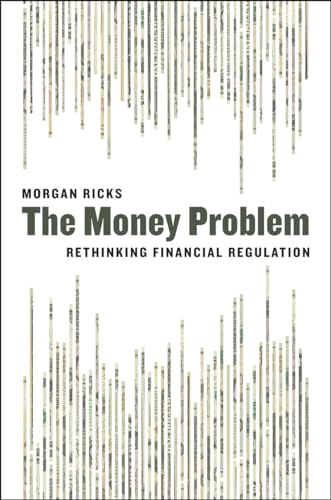The Money Problem: Rethinking Financial Regulation
In “The Money Problem: Rethinking Financial Regulation”, Morgan Ricks explores the intricate world of financial regulation, advocating for a fundamental reevaluation of how we prevent economic crises. This book is essential for anyone wanting to understand the rationale behind financial policies and the implications of systemic risk. Ricks questions conventional wisdom and brings a fresh perspective on regulatory frameworks that govern our financial markets. It’s not just a read for policymakers but for anyone interested in the socio-economic factors that shape our banking systems.

Research Handbook on the Regulation of Mutual Funds
This extensive volume, authored by William A. Birdthistle and John Morley, dives deep into the complexities of mutual fund regulation. With the increasing popularity of mutual funds, understanding their regulatory framework has never been more crucial. This handbook addresses all major aspects of mutual fund regulation, providing insights that are invaluable for industry professionals, regulators, and students alike. It’s a comprehensive source that balances theoretical insights with practical applications, making it a must-have resource.

Investor Protection: Towards Additional EU Regulation of Investment Funds?
Hanneke Wegman’s “Investor Protection” tackles the pressing question of how to enhance investor security within the European investment framework. In light of recent financial crises, this book delves into the adequacy of current regulations and proposes new measures for safeguarding investor interests. It’s a critical read for finance professionals and regulators looking to understand and improve the protective measures around EU investment funds.

Principles of Banking Regulation
Kern Alexander’s “Principles of Banking Regulation” provides a comprehensive background into the banking regulatory landscape. This book is particularly relevant in today’s ever-evolving financial environment, where regulations frequently change to respond to economic challenges. Alexander outlines key principles and practices that govern banking behavior, making it indispensable for students, academics, and industry practitioners eager to navigate this complex field.

Bank Regulation, Risk Management, and Compliance
In “Bank Regulation, Risk Management, and Compliance”, Alexander Dill combines theoretical foundations with practical applications to address critical issues faced by modern banks. This text is tailored for finance professionals tasked with ensuring compliance while also mitigating risks. Dill’s insights are invaluable in navigating the regulatory maze and adapting to the continuously evolving landscape of banking regulation.

Hedge Fund Regulation in the European Union
Phoebus Athanassiou’s “Hedge Fund Regulation in the European Union” presents a crucial analysis of the evolving regulatory environment for hedge funds. With hedge funds often in the spotlight of financial scandals, this book provides insights into current trends and future prospects for regulation. It is a fundamental resource for anyone in finance looking to grasp the complexities of hedge fund regulation in Europe.

Mutual Funds and Exchange Traded Funds Regulation
Authored by Clifford E. Kirsch, this book explores regulation in mutual funds and ETFs, illustrating the overlap and differences between these two popular investment vehicles. With the ongoing growth of ETFs, understanding their regulatory environment is crucial for investors and regulators alike. This book serves as an authoritative guide for navigating the evolving landscape of investment fund regulation.

Why Shadow Banking Didn’t Cause the Financial Crisis
Norbert J. Michel presents a compelling argument in “Why Shadow Banking Didn’t Cause the Financial Crisis,” challenging common perceptions about financial crises. With thorough research and analysis, this book provides readers with a better understanding of the complexities of shadow banking and its role (or lack thereof) in financial downturns. This book is essential for anyone looking to engage with finance-related theories critically.

Hedge Fund Regulation
Scott J. Lederman’s “Hedge Fund Regulation” highlights the intensive scrutiny hedge funds face today. This book gives a thorough overview of the regulatory landscape and the challenges hedge funds must navigate. It’s an essential resource for professionals in hedge fund management, providing necessary tools and insights needed to operate successfully in today’s stringent environment.

Investment Adviser Regulation in a Nutshell
“Investment Adviser Regulation in a Nutshell” by Jeffrey Haas and Steven Howard presents a succinct yet comprehensive overview of the regulations governing investment advisers. The book serves as a vital tool for advisers looking to comply with regulatory requirements while protecting their clients’ interests. It provides insights into best practices, making it an accessible resource for both new and experienced investment advisers.





































